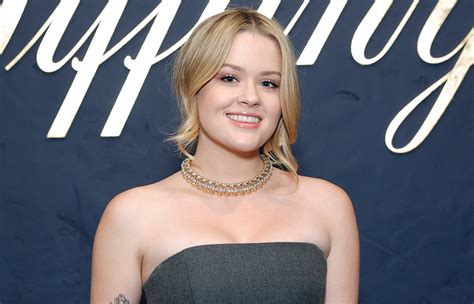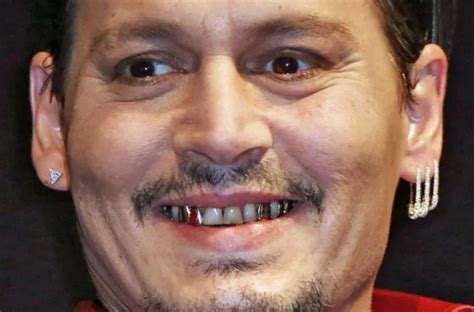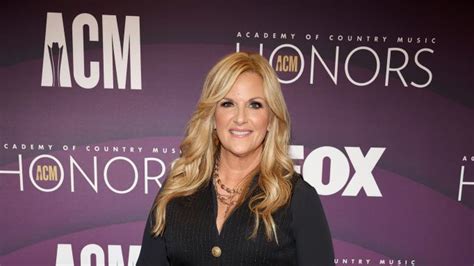
Ava Phillippe, daughter of Reese Witherspoon and Ryan Phillippe, has addressed comments suggesting her boyfriend, Oliver Anand, resembles her father. The 24-year-old responded lightheartedly to the remarks on social media, demonstrating her characteristic poise and humor in the face of public scrutiny.
Ava Phillippe, the eldest child of Hollywood stars Reese Witherspoon and Ryan Phillippe, has recently addressed the recurring comments regarding the resemblance between her boyfriend, Oliver Anand, and her father. The observation, frequently voiced on social media platforms, prompted Phillippe to offer a witty and succinct response, showcasing her ability to navigate the often-intrusive nature of public attention. This incident highlights the complexities faced by children of celebrities as they navigate their personal lives under the constant gaze of the media and public. The discourse surrounding Ava’s relationship underscores the public’s fascination with celebrity lineages and the tendency to draw comparisons between generations.
The comments initially surfaced on social media, accompanying photos of Ava and Oliver. Many users pointed out perceived similarities in facial features, hair color, and overall appearance between Oliver and Ryan Phillippe. This led to a flurry of reactions, ranging from humorous observations to more critical assessments of the relationship. Ava, known for her graceful handling of public attention, responded with a measured and humorous approach, subtly acknowledging the comments without dignifying them with an overly serious reaction.
Phillippe’s response reflects a growing trend among young celebrities who are increasingly using social media to control their own narrative and address rumors or comments directly. By engaging with the discussion, Ava was able to steer the conversation and prevent it from spiraling into further speculation or negativity. This proactive approach is a marked departure from the more traditional methods of celebrity PR, where silence or carefully crafted statements were the norm.
The focus on Ava Phillippe’s personal life is not surprising, given the high profile of her parents. Reese Witherspoon, an Academy Award-winning actress, and Ryan Phillippe, a well-known actor in his own right, have both maintained successful careers in Hollywood. Their relationship and subsequent divorce were heavily publicized, and their children have remained in the public eye ever since. This constant attention places significant pressure on Ava and her siblings to navigate their lives in the spotlight while maintaining a sense of normalcy.
The incident also raises broader questions about the public’s obsession with celebrity relationships and the tendency to project expectations and judgments onto the children of famous individuals. Ava’s experience is not unique; many children of celebrities face similar scrutiny and comparisons, often struggling to establish their own identity separate from their parents’ fame. The prevalence of social media has amplified these challenges, making it easier for the public to voice opinions and criticisms, often without considering the impact on the individuals involved.
The discussion surrounding Ava’s boyfriend also touches on the complex dynamics of family resemblance and the psychology behind our perception of attractiveness. Studies have shown that individuals are often drawn to partners who share similar traits to their parents, although this is not always a conscious decision. The public’s fascination with this phenomenon may explain the widespread interest in the perceived similarities between Oliver Anand and Ryan Phillippe.
Furthermore, the media’s coverage of Ava’s response highlights the evolving role of social media in shaping public discourse and influencing celebrity culture. Platforms like Instagram and Twitter have become essential tools for celebrities to connect with their fans, promote their projects, and address controversies directly. Ava’s use of social media to respond to the comments about her boyfriend demonstrates the power of these platforms in allowing celebrities to control their own narrative and engage with their audience on their own terms.
In conclusion, Ava Phillippe’s response to the comments about her boyfriend underscores the challenges faced by children of celebrities in navigating public attention and maintaining their privacy. Her graceful and humorous handling of the situation reflects a growing trend among young celebrities to use social media to control their own narrative and engage with their audience directly. The incident also raises broader questions about the public’s obsession with celebrity relationships, the dynamics of family resemblance, and the evolving role of social media in shaping public discourse.
The incident serves as a microcosm of the larger issues surrounding celebrity culture and the pressures faced by those who grow up in the spotlight. Ava Phillippe’s ability to navigate these challenges with poise and humor is a testament to her resilience and maturity. As she continues to pursue her own path, she will undoubtedly face further scrutiny and attention, but her recent response suggests that she is well-equipped to handle whatever comes her way.
The scrutiny faced by celebrity children isn’t new, but its intensity has undeniably increased in the age of social media. Before the advent of platforms like Instagram, Twitter, and TikTok, the public’s access to celebrities’ personal lives was largely filtered through traditional media outlets like magazines, newspapers, and television. This created a buffer, allowing celebrities and their families a degree of control over their public image. Today, however, social media has democratized the flow of information, enabling anyone with an internet connection to share their thoughts and opinions with a global audience. This has led to a more intrusive and often unforgiving environment for celebrities and their children.
Ava Phillippe’s experience is a prime example of this phenomenon. The comments about her boyfriend’s resemblance to her father spread rapidly across social media, amplified by the algorithms that prioritize engagement and virality. While some of the comments were lighthearted and humorous, others were more critical and even judgmental. This underscores the challenges faced by young celebrities who are constantly under surveillance and subject to public scrutiny.
One of the key issues at play is the blurring of boundaries between public and private life. In the past, celebrities could expect a degree of privacy when they were not actively promoting their work or attending public events. Today, however, social media has created a culture of constant surveillance, where every aspect of a celebrity’s life is potentially subject to public scrutiny. This can be particularly challenging for children of celebrities, who may not have chosen to live in the spotlight but are nonetheless thrust into it by their parents’ fame.
Another factor contributing to the intense scrutiny faced by celebrity children is the public’s fascination with celebrity lineages. There is a tendency to view the children of famous individuals as extensions of their parents, projecting expectations and judgments onto them based on their parents’ achievements and failures. This can create a sense of pressure to live up to certain standards or follow in their parents’ footsteps, even if they have different interests and aspirations.
Ava Phillippe, for example, has expressed an interest in art and fashion, and she has pursued various creative projects. However, her every move is inevitably compared to her parents’ careers in acting and filmmaking. This can be frustrating and limiting, as it prevents her from being seen as an individual with her own unique talents and aspirations.
Furthermore, the public’s obsession with celebrity relationships often extends to the children of famous couples. The dynamics between Reese Witherspoon and Ryan Phillippe, both during their marriage and after their divorce, have been closely followed by the media and the public. This has undoubtedly had an impact on their children, who have grown up in the shadow of their parents’ fame and relationship history.
The comments about Ava Phillippe’s boyfriend’s resemblance to her father can be seen as a reflection of this broader phenomenon. The public’s fascination with celebrity relationships and lineages has led to a tendency to draw comparisons between generations, projecting expectations and judgments onto the children of famous individuals based on their parents’ relationships.
In light of these challenges, it is important to recognize the importance of empathy and understanding when discussing the lives of celebrity children. They are often subject to intense scrutiny and pressure, and it is crucial to avoid making judgmental or critical comments that could have a negative impact on their well-being. Ava Phillippe’s response to the comments about her boyfriend serves as a reminder that celebrity children are individuals with their own thoughts, feelings, and experiences, and they deserve to be treated with respect and compassion.
The digital age has undeniably amplified the intensity of scrutiny faced by celebrity children, transforming what was once a manageable level of attention into a constant barrage of opinions and judgments. The accessibility of social media platforms has effectively removed the traditional filters that once existed, allowing anyone with an internet connection to weigh in on every aspect of their lives. This democratization of opinion, while empowering in many respects, has also created a breeding ground for unsolicited commentary, often devoid of context or empathy.
Ava Phillippe’s experience is a poignant illustration of this phenomenon. The seemingly innocuous observation about her boyfriend’s resemblance to her father quickly spiraled into a widespread discussion, fueled by the algorithms that prioritize engagement and virality. While some comments were undoubtedly intended as harmless banter, others veered into more critical and even judgmental territory, highlighting the fine line between public interest and intrusive scrutiny.
The challenge for celebrity children lies in navigating this constant influx of opinions while attempting to maintain a sense of normalcy and privacy. Unlike their parents, who have often consciously chosen a life in the public eye, celebrity children are thrust into the spotlight from a young age, often without having a say in the matter. This can create a profound sense of pressure, as they are constantly aware of being watched, judged, and compared to their famous parents.
One of the key issues at play is the erosion of boundaries between public and private life. In the past, celebrities could expect a degree of privacy when they were not actively promoting their work or attending public events. Today, however, social media has created a culture of perpetual surveillance, where every aspect of a celebrity’s life is potentially subject to public scrutiny. This can be particularly challenging for children of celebrities, who may not have the same level of experience or resources to navigate the complexities of fame.
Furthermore, the public’s fascination with celebrity lineages often extends to the children of famous couples. The dynamics between Reese Witherspoon and Ryan Phillippe, both during their marriage and after their divorce, have been closely followed by the media and the public. This has undoubtedly had an impact on their children, who have grown up in the shadow of their parents’ fame and relationship history. The comments about Ava Phillippe’s boyfriend’s resemblance to her father can be seen as a reflection of this broader phenomenon. The public’s fascination with celebrity relationships and lineages has led to a tendency to draw comparisons between generations, projecting expectations and judgments onto the children of famous individuals based on their parents’ relationships.
In light of these challenges, it is crucial to recognize the importance of empathy and understanding when discussing the lives of celebrity children. They are often subject to intense scrutiny and pressure, and it is essential to avoid making judgmental or critical comments that could have a negative impact on their well-being. Ava Phillippe’s response to the comments about her boyfriend serves as a reminder that celebrity children are individuals with their own thoughts, feelings, and experiences, and they deserve to be treated with respect and compassion. The narrative surrounding Ava Phillippe and her boyfriend underscores a crucial aspect of contemporary celebrity culture: the relentless intrusion into personal lives, particularly those of celebrity offspring. This constant surveillance, amplified by social media, creates an environment where even the most innocuous observations can quickly escalate into widespread discussions and unwarranted scrutiny. Ava’s poised response highlights the resilience required to navigate such a landscape, but it also begs the question: what are the ethical boundaries of public interest, and how can we foster a more compassionate approach to covering the lives of those who have not necessarily chosen the spotlight?
Frequently Asked Questions (FAQ)
1. What prompted Ava Phillippe to respond to comments about her boyfriend?
Ava Phillippe responded to comments on social media that pointed out the resemblance between her boyfriend, Oliver Anand, and her father, Ryan Phillippe. The comments were prompted by photos of Ava and Oliver together.
2. How did Ava Phillippe respond to the comments?
Ava responded with a humorous and measured approach, subtly acknowledging the comments without taking them too seriously. She handled the situation with poise, demonstrating her ability to navigate public attention gracefully.
3. Why is there so much public interest in Ava Phillippe’s personal life?
The public interest stems from the high profile of her parents, Reese Witherspoon and Ryan Phillippe, who are both successful actors. Their relationship and divorce were heavily publicized, and their children have remained in the public eye ever since.
4. What challenges do children of celebrities face?
Children of celebrities face challenges such as constant public scrutiny, difficulty establishing their own identity separate from their parents’ fame, and pressure to live up to certain expectations. Social media amplifies these challenges, making it easier for the public to voice opinions and criticisms.
5. How does Ava Phillippe’s situation reflect broader issues in celebrity culture?
Ava’s situation highlights the public’s obsession with celebrity relationships and lineages, as well as the evolving role of social media in shaping public discourse and influencing celebrity culture. It underscores the challenges faced by young celebrities in navigating public attention and maintaining their privacy in the digital age.









